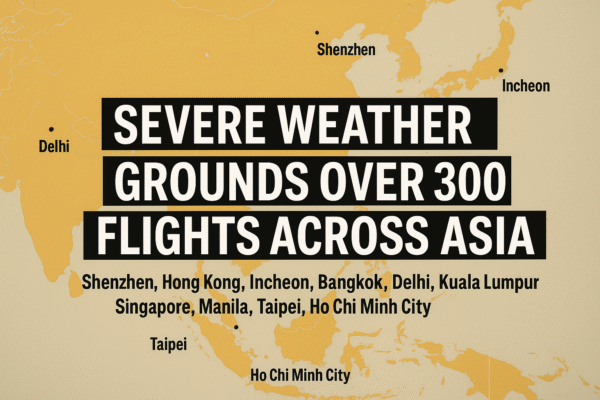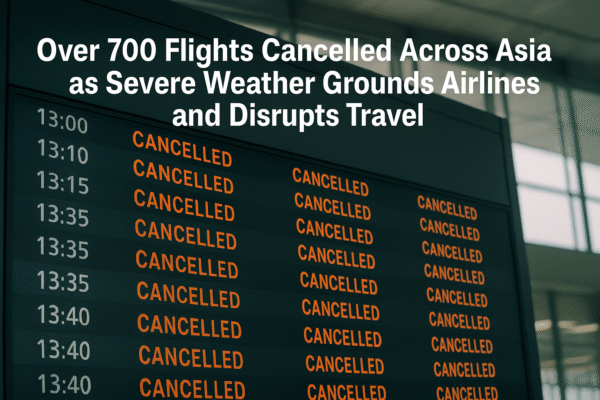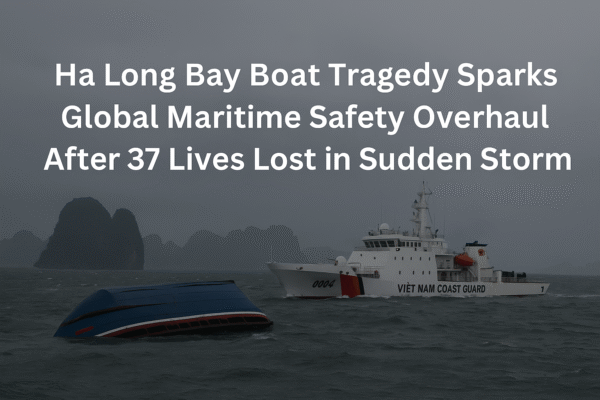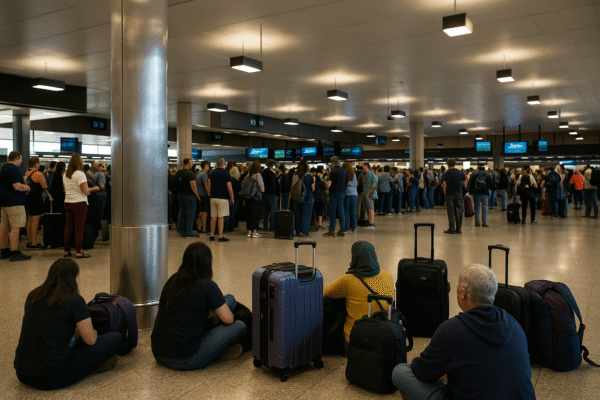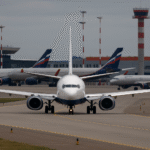Alaska Airlines Grounds All Flights in Nationwide Tech Meltdown, Leaving Thousands of U.S. Travelers Stranded
In a stunning blow to summer travel across the United States, Alaska Airlines and its regional partner Horizon Air grounded all flights the evening of July 20 due to a critical IT system failure. The outage, which began at approximately 8:00 PM Pacific Time, caused widespread flight cancellations and delays across the country — from Seattle and Portland to New York and Atlanta — impacting thousands of vacationers, business travelers, and airline crew members.
By 11:00 PM, the system had been partially restored and flight operations gradually resumed. But by then, the ripple effects had cascaded through key airports and tourist hubs, snarling itineraries, overrunning airport services, and straining hospitality networks across the West Coast and beyond.
Major Tourism Hubs Hit Hardest
According to flight tracking data from FlightAware, more than 300 flights were delayed or canceled during the three-hour halt, affecting both Alaska Airlines’ mainline operations and those of Horizon Air, which serves smaller regional airports. The airline operates over 300 aircraft and flies to more than 115 destinations across the U.S., Mexico, and Canada, making it a vital tourism lifeline for the Pacific Northwest and Alaska.
In Seattle, Alaska Airlines’ home base, lines stretched through Sea-Tac International Airport terminals as passengers scrambled to rebook missed connections to places like Fairbanks, Denver, and Chicago. Travelers hoping to visit Washington’s national parks or attend weddings, festivals, and business events were forced to find last-minute accommodations or abandon plans altogether.
Southern California also felt the brunt of the chaos. In Los Angeles and San Diego, where many summer travelers arrive to enjoy coastal vacations, local hotels reported high volumes of late check-ins, cancellations, and frustrated guests stranded overnight. In Las Vegas, the shutdown cut into weekend arrivals that fuel entertainment, gaming, and convention bookings, hitting the city’s tourism economy during a high-demand period.
Anchorage and the Alaska Tourism Chain Disrupted
Alaska’s tourism sector was especially affected. Anchorage, a critical gateway to destinations like Denali National Park and the Kenai Peninsula, saw a surge in delayed arrivals and overnight passenger buildups. Local lodge owners and tour operators expressed concern as group bookings were canceled or rebooked at a loss. Seasonal guides reported losing full-day excursions to the disruption.
According to data from the Alaska Travel Industry Association (ATIA), Alaska Airlines carries a significant portion of the state’s leisure travelers — many of whom book wilderness trips, cruises, and cultural experiences that operate on tight schedules. “A delay like this is not just a few hours; it can mean an entire vacation lost,” said one lodge manager in Talkeetna.
IT Breakdown Signals Infrastructure Vulnerability
The Federal Aviation Administration (FAA) categorized the situation as a “complete cessation of operations” in advisories issued to airports and carriers. The Department of Transportation (DOT) noted that airlines are required to ensure robust digital systems to support continuous travel operations, especially during peak periods.
Alaska Airlines has not released full technical details but confirmed an “IT system outage” was to blame. The failure echoes a previous grounding in April 2024, when the airline halted flights due to an internal weight-and-balance system issue.
Cybersecurity experts and aviation analysts warn that such incidents point to a growing vulnerability in airline digital infrastructure. “Today’s aircraft and airport operations are tightly interlinked through digital systems,” said Professor Linda Grant of the MIT International Center for Air Transportation. “A single glitch can cascade into a full system halt, especially if redundancy or backup protocols are weak.”
Economic Fallout for Tourism Businesses
The economic consequences were swift. According to the U.S. Travel Association, travel delays and cancellations cost U.S. businesses and travelers billions annually, and this incident highlights just how intertwined aviation and tourism economies have become.
In Portland, where Alaska Airlines connects numerous international travelers arriving via Vancouver, BC, airport officials reported congestion, long wait times, and an influx of customer service complaints. Canadian and Mexican tourists reported missed hotel stays, canceled excursions, and lost time in cities like San Francisco and San Diego.
Local restaurants, museums, and entertainment venues across affected cities also noted a slump in evening attendance, with many stranded travelers choosing to remain near airports. For smaller tourism-focused businesses, the interruption was more than an inconvenience — it was a revenue loss at the peak of summer.
Federal Oversight and Passenger Compensation
The Department of Transportation’s Aviation Consumer Protection Division confirmed it had received passenger complaints regarding compensation, refunds, and rebooking. According to DOT regulations, airlines are not required to compensate travelers for delays caused by events outside their control, but IT failures are increasingly scrutinized as preventable with adequate safeguards.
Congressional leaders have previously called for stronger accountability measures, including legislation that would impose penalties for preventable digital infrastructure failures and require clearer passenger compensation policies.
A Wake-Up Call for Travel Resilience
Tourism boards in cities like San Diego, Portland, and Anchorage have already begun conducting post-event impact assessments. Proposed future strategies include improved coordination between airlines, local tourism offices, and hospitality partners to implement emergency response plans when mass disruptions occur.
Alaska Airlines has pledged to perform a full audit of its IT systems. Analysts say this review may shape future industry standards as digital reliability becomes as critical as aircraft maintenance.
Conclusion: Restored Flights, But Fractured Trust
While Alaska Airlines restored operations within hours, the outage exposed vulnerabilities in the U.S. air travel system. It was a sobering reminder that even a brief digital breakdown can paralyze major tourism flows. For travelers like Jessica Allen — stuck overnight in Seattle en route to a family reunion in Atlanta — the experience was not just inconvenient but deeply disheartening.
As flights return to normal, rebuilding trust will require more than apologies. It will demand real investment in tech-proofing the travel experience for the millions of Americans and international visitors who depend on seamless aviation to explore the country.
For more travel news like this, keep reading Global Travel Wire




